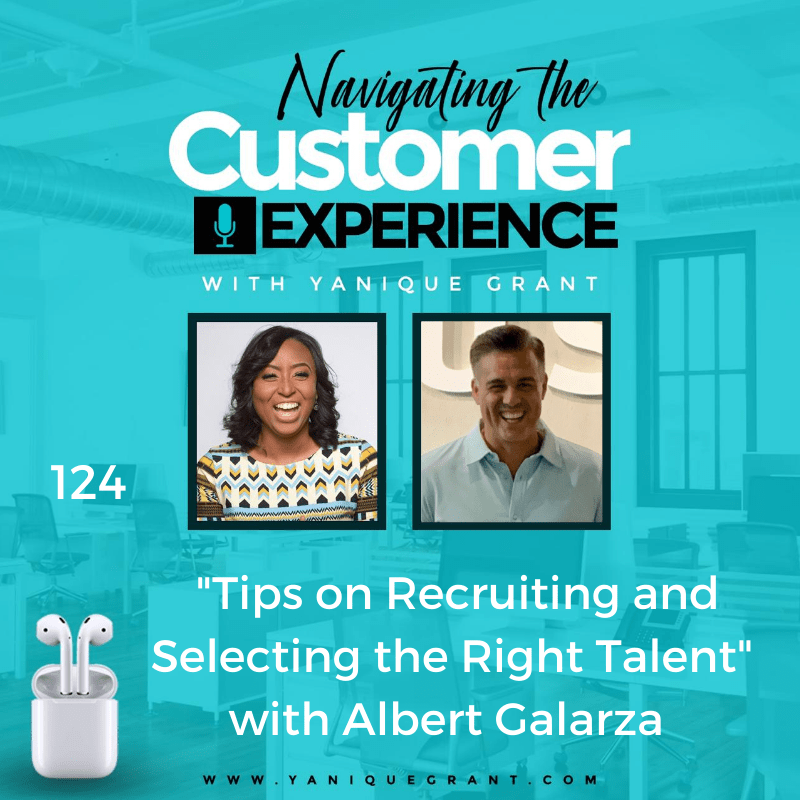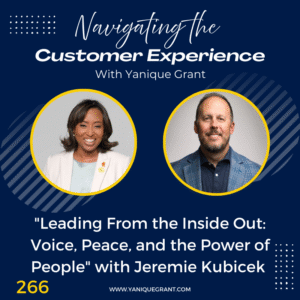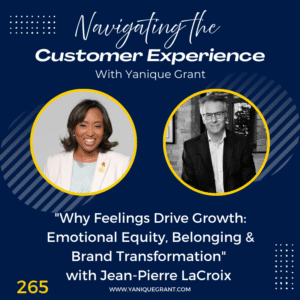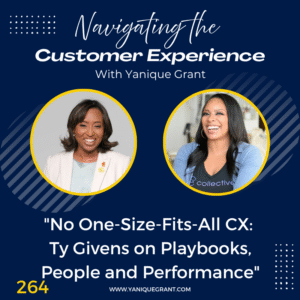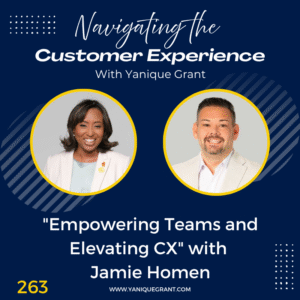Albert Galarza is the Global Vice President of Human Resources at TELUS International. He joined the organization in 2016, and has over 20 years of experience in human resources across retail and technology industries. In his role at TELUS International, Albert leads an HR organization of over 600 professionals supporting almost 50,000 team members in 20 countries. He is responsible for the entire HR suite of services including HR Generalists, Talent Acquisition, Compensation & Benefits, HR Operations and People Analytics.
Questions
- Could you just tell us a little bit about your journey, how you got to where you are today?
- Could you tell our audience what is TELUS International? And what do you guys do?
- So maybe could you share with us maybe one or two things that you think persons that would be in that role? Because you’d have a lot of persons who listen to this podcast who they may be the business owner, but they also wear the hat off recruiter or HR person for their company, because they’re not big enough to have a natural HR department. So what are some things that you think they would need to be considering to ensure that you’re getting the right people and retaining them?
- How have you seen organizations really adapt or adjust accordingly based on what’s happening in terms of just keeping people motivated, especially seeing that you’re managing people across different countries, every country is dealing with the pandemic differently. How has that been for your organization?
- Could you share with us maybe what’s the one online, resource, tool, website or app that you absolutely cannot live without in your business?
- Could you share with us maybe one or two books that have had the biggest impact on you, it could be a book that you read a very long time ago, or it could be one that you read recently, but it has had a great impact on you.
- Could you share with us what’s the one thing that’s going on in your life right now that you’re really excited about – it could be something that you’re working on to develop yourself or your people?
- Where listeners find you online if they wanted to connect with you?
- Do you have a quote or saying that during times of adversity you tend to revert to this quote, it kind of helps to refocus you or get you back on track if you get derailed? Do you have one of those?
Highlights
Albert’s Journey
Albert shared that he is originally from Mexico, he was actually born and raised in Mexico, and he lived there till his teenage years, when they moved to the US and he has had the privilege of living in several states throughout the US both personally and for professional reasons. And he has had the great pleasure of travelling throughout many, many countries, both for personal reasons, and mostly for professional reasons as his bio says; they currently support 50,000 team members in 20 countries and he has been to every one of those countries that they operate in. So it’s been a great, great experience for him to be part of this organization.
He still visits Mexico, obviously pandemic, and he plans to visit post pandemic when it’s safe to travel again. And when he thinks of his journey, particularly to customer experience, Mexico has always had a huge tourism industry and so he thinks that his customer service experience journey began early on. It’s common when one visits a Mexican resort, or even a Mexican corner. That actually the person on the other side of the car will usually say to you, it’s my pleasure to serve you. And that’s always stuck with him since a very early age.
He also thinks that our journey begins early on for all of us, no matter where we come from, or what we do now as adults. What he means by that is, all of us had always had an internal customer experience journey, even from the time we were children at a very early age, think of the relationship we have with our parents early on, and the experience that we provided them and the experiences that they provided us. And he thinks that translates well into the working world. His customer experience relates to achieving little win scenarios every day in his interactions with both their internal and external customers. As you can see by his bio, it’s been a long journey so far, and one that he looks forward to continuing on for many, many years to come both personally and professionally.
What is TELUS International?
Albert shared that TELUS International designs, builds and delivers next generation digital solutions which enhance your customer experience and many of their customers are customers that you actually deal with your daily life, whether you’re using some of the world’s largest search engines, or using some of the world’s largest phone manufacturers, or you’re using even to log on to some of your social media apps, that’s what they do. They help a lot of those brands design and build the next generation digital solution. They also help them support the full lifecycle of clients’ digital transformation training, and they enable them to move quickly through these next generation of technologies that come up just about every day.
And the desired outcome for them (TELUS) is to make sure that they are a solid extension of those brands that they support. They have solutions and capabilities that expand the digital strategy, they’re also quite innovative, and they do a lot of consulting with them as well when it comes to transforming their own journey. Think of companies that are trying to design autonomous vehicles, they will work with those companies to help them make sure that they have a product that will be intuitive, and that they will have a product that can be supported both remotely inshore and onshore.
Me: Okay, can you give us an example of maybe a company that you’ve worked with. I see here on the website that you work in industries such as Communications and Media, Healthcare, Tech and Games, eCommerce, and FinTech and Travel and Hospitality. So maybe pick one of those industries and just give us an example of how it is that you are transforming something that you’re helping that client to achieve.
Albert stated that for your Canadian audience the named TELUS will be very familiar. And so that’s actually one of their own internal customers, they actually help TELUS with all of its coding programming and networking, as well as support, and they have several employees around the world, including in Canada who will help the TELUS Corporation as well as TELUS customers in Canada, make sure that they have the daily communication through their network, make sure that the daily entertainment to their network and more importantly, make sure that their customers have the ability to stay connected, doing the things that they love most, to those that they love most.
Tips on Recruiting and Retaining the Right People
Me: So you focus a lot as your bio says, you’re responsible for the entire HR suite of services, including Talent Acquisition and People Analytics. Customer service is all about people. I know, for example, in Jamaica, one of the big things that my customers complain about is getting the right persons and keeping them in your organization. So maybe could you share with us maybe one or two things that you think persons that would be in that role? Because you’d have a lot of persons who listen to this podcast who they may be the business owner, but they also wear the hat off recruiter or HR person for their company, because they’re not big enough to have a natural HR department. So what are some things that you think they would need to be considering to ensure that you’re getting the right people and retaining them?
Albert shared that if you’re lucky enough to run and operation where you can make all the decisions yourself, he thinks that’s actually quite good. Bigger is not always better and bigger is not always faster, it does usually mean that you have quite a bit of resources available to you. But sometimes the decision tree is a little bit bigger.
But if you are in charge of selecting your own talent, and being the decision maker, he thinks selection has to be well done before you think of retention and engagement. What he means by that is, make sure that you’re clear with your candidates, what they can expect by working with you, and make sure that they’re clear with you what you can expect by working with them. Because like any other relationship, the more transparent and the more honest that we are at the beginning of that relationship, that bigger likelihood for success that we will have in nurturing that relationship. And so, if once you get them in the door, and it’s very important that at that point that you both listen to each other, that you both help solve solutions for each other.
One of the benefits he thinks of a smaller organization is that they tend to be more flexible and more nimble, as a beginner, if you have that ability to be much, much more open to flexibility of somebody’s schedule, and spend a lot more time with them face to face, because again, the bigger you get, the less time unfortunately that you will have as a leader and as a direct report of yours to spend time with each other because naturally the work becomes larger in scope.
He thinks if you select the right person, if they select you as the right employer, or if you’re transparent at the beginning of that selection process, and then once you start working together if you’re open and honest with each other and listen to each other’s needs you can solve together and he thinks that will help you select and retain that available talent so that when you’re running an organization of 5 people or 500 people or 50,000 people, he thinks both can be achieved as far as the right selection and the right intension.
How to Keep People Motivated?
Me: It’s been a very unusual period, of course because the world is going through a pandemic. Could you share with us just based on your experience? Because you’ve indicated that you’re operating quite a few countries across the world. How have you seen organizations really adapt or adjust accordingly based on what’s happening in terms of just keeping people motivated, especially seeing that you’re managing people across different countries, every country is dealing with the pandemic differently. How has that been for your organization?
Albert stated that we are literally weeks away from when the pandemic was first declared, depending on the country you live in, most people declare the pandemic, the week of March 12 and then most everyone declared, the week of March 19 for the United States where he lives it was March 19, when they pretty much went on lockdown.
And so, he thinks there have been a few stages to the pandemic in the way that organizations have dealt with it. Early on from March through mid April, he thinks most of the organizations were in denial that this was going to be more than just a couple of weeks. And so, he thinks the way that we adjusted for that was okay, let’s just take a wait and see attitude and see what happens. And then as we realized that more and more countries went into lockdown, and the pandemic started to spread, we quickly had to figure out a way to really embrace the remote work environment, not just for employees, but for customers.
And so the way that you think about shopping for milk changed, because maybe we’re more apt to maybe have it delivered to your home versus having to go get it or the times that you went to go get milk was different than pre pandemic. And so, he thinks organizations realized in the second stage of the pandemic that we had to quickly embrace the remote workplace.
And for them at TELUS International, which is a company that is strongly built on what they call a cultural value chain, which is a proven formula where strong corporate culture and employee engagement equate to the ability to innovate. And they also achieve higher customer satisfaction, and they ultimately deliver stronger financial performance because of this culture value chain, they realized that they had a great cultural value chain in the work locations, but they had never done 50,000 employees be working remotely, literally overnight.
And so they made sure that they immediately took all the great knowledge that they had, and all the great experiences that they had on site culture validation and immediately started become virtual with it. And he thinks their team members appreciated that, their team members enjoyed the idea that, “Even though I’m not with my team, even though I’m not with my leader, and I’m working remote for I don’t know how long, I appreciate that the company is still doing virtual yoga classes, I appreciate that the company is still doing remote financial wellness, I appreciate that the company is still doing mental health exercises, I appreciate that we’re still having virtual recognitions, and reward.” So they had to take what they were very good at on site and immediately create a platform that they can leverage, again, the remote workplace.
And he thinks companies that already had a strong work culture on site, naturally, connect and navigate the virtual and deliver that strong culture virtually but organizations who had a tough time with building a strong culture on site, naturally, also have had a tough time delivering that virtual culture. And they’re going up on a year now.
So, the good news is, it’s never too late and there’s plenty of good readings out there that will help an organization get better at this virtual remote environment. Because we now know that most of the biggest companies in the world is Facebook, or Google or Amazon and Microsoft have said that they don’t intend to go back to the site till sometime in July. That’s a great thing if you’re a parent, then you’ve been able to spend time with your children and your family. But if you’re an up and comer, and you want to be around the decision makers and you want to showcase your abilities and your talent, it’s very difficult to do that in a remote environment. So, being home 100% at times is not the best thing for everybody, but being on site 100% times is that the best thing for everybody either, it just depends on the station you are within your career.
App, Website or Tool that Albert Absolutely Can’t Live Without in His Business
When asked about an online resource that he cannot live without in his business, Albert shared that he still likes to look at social media for what’s fun and trendy, and the latest and greatest and he’ll give you an example. He spent a few years in the retail industry and in the retail industry, a lot of big name designers often look to what was going on in the school yards, and the nightclubs, in the restaurants for inspiration, that’s what the next season’s big fashion thing was going to be. So he thinks that the audience that you’re targeting is always the best measure of what it is that they’re looking for. And as an example, they realized early on that their audience, the majority of the team members that they hire are in their 20s, they like the online social media presence, very different than even the millennials. The millennials like the playing remotely, like engaging remotely, but they still wanted to come see what your work location look like. The Generation Z is really much, much more comfortable with virtual all the time and so they really have been leveraging a lot of the social media apps to see what’s the best way to reach their audience. And then they mimic some of the social media apps for even their internal communications, one of the platforms that they launched early in the pandemic is an internal social media platform called Cosmos.
And this again, mirror very much to what they know that their team members are comfortable with, it’s very gamified. It’s very about giving compliments, it’s about posting comments, and pictures. And it worked wonderfully for them. And so, he still looks personally to a lot of what’s going on in the world and in social media to try to gain inspiration for how to duplicate some of that.
Books That Have Had the Greatest Impact on Albert
When asked about books that have had the biggest impact, Albert shared that he didn’t get a chance to tell Yanique this but he has an eight year old, his name is Dylan. And he’s quite a lot of fun, he’s their only son, he and his wife have been married for over 20 years. And so Dylan has been their shining light for the past 8 years. So while he read a lot of great professional books in his life, the last few years he has been reading a lot of children’s books. And one children’s book that he read that he wanted to share today. And he doesn’t know if you ever read this book, but it’s actually Drew Daywalt, The Legend of Rock Paper Scissors.
And the message he gets from this book is that rock is going through its surroundings, being the champion, nobody can beat him. And then scissors is going through its surroundings, also being the champion, nobody can beat them. And then paper is going through its surroundings being the champion, nobody can beat them.
And even though they’re number one, and rock is beating everybody in the garden, and scissors is beating everybody in the in the kitchen, and paper is beating everybody in the home office, it wasn’t till they venture out of their comfort zone looking for worthy challenge that they found fulfilment.
And that’s kind of how I see the world of business today. It wasn’t till we were pushed out of our comfort zone to really embrace the remote work environment. Now, some companies are further along than a lot of other companies. But when we were forced to come out of our comfort zone, and we were forced to immediately deploy at TELUS international, they have 35,000 team members around the world to work from home in a matter of three weeks. From the beginning of April to the middle of April they pretty much at 35,000 people working.
And so, he thinks that’s how you grow a business, that’s how you grow in life, you have to take yourself out of your comfort zone. And so, even though at TELUS International, they achieved an 86% engagement score in September as measured by an outside party called Consentrate.
They’re not satisfied, that worked great in the garden, but they want to go into the kitchen and face the champion of the kitchen. So, he really quite enjoys The Legend of Rock Paper Scissors because again, the message to him is, don’t stop challenging yourself, get out of your comfort zone and make sure that you take the time.
Even when you are beaten to recognize that you still find a good fight, and you have to get back up, and you have to do it again. And that’s ultimately what Rock, Paper, Scissors do is when they fight each other, as you know, paper beats rock, but rock beats scissors and then scissors beats paper, and they just keep going. Because to them, it was never about the win, it was about the challenge.
What Albert is Really Excited About Now!
Albert shared that he finds excitement and inspiration in both his ‘work family’ and his ‘family family.’ And his eight-year-old right now is in a stage where everything is interesting, everything is important. He wants to do his very best, he as a test tomorrow on the 50 US Capitals. And then he also has to identify by geography where each state in the US is by name, and they have been working on that non-stop for last week and a half. And so he’s excited to see him achieve his result tomorrow. And like he told him, it’s ultimately about the work you put in and if you put enough work in, if you really learned it, you’ll be able to do really well.
On the work side, they have been automating quite a bit, even before the pandemic. Again, if you’re going to be in 20 countries with 50,000 employees, you can’t be in 20 places at once. So they have been really investing in automating their day to day activities. And what’s exciting about that is the more they automate, the more free sub leaders do what they do best and that’s lead people and support people. And he thinks at that point, both leader and employee benefit, because that means they get to spend more time with each other, they spend less time updating their personal data, they spend less time updating their performance, they spend less time manually checking the to do lists, because all that becomes automated. And they can spend more time coaching each other guiding each other and ultimately supporting the clients that they serve around the world.
Where Can We Find Albert Online
Website – www.telusinternational.com
Twitter – @TELUSint
Facebook – @TELUSInternational
Instagram – TELUS
Quote or Saying that During Times of Adversity Albert Uses
When asked about a quote or saying that he tends to revert to, Albert shared that he does actually, and interestingly enough he still like to think that at some point, he doesn’t know when, he’s hoping the experts are accurate when the experts say it’s probably 2022 around this time that things will return to as normal as the new normal will be.
But even before the pandemic, for those of us that have been around long enough, before the pandemic, if you remember, we had the great recession of 2008 that was nowhere near a health risk, but it was certainly an economic risk, and it put a lot of friends and family out of work and it made a lot of people lose their homes and so that was a pretty bad time.
But we recovered and we came out of a very strong and if you remember before that time, we had the terrorist attacks of 2001 so that created an economic shock wave. So it almost always seems like in some point in our lifetime, there’s going to be some adversity. And so, but he also knows that almost always we seem to come out of it even stronger as a society than we have before. So he still loves Mark Twain’s quote about, “Dance like nobody’s watching, love like you’ve never been hurt, sing like nobody’s listening and live like it’s heaven on earth.”
Me: Live like it’s heaven on earth. I like that one Albert, really fun, light, festive but kind of reminds you of the important things in life not to take ourselves too seriously.
Albert stated that just like they talked about, life is a journey. And like he said, three major world impacting issues in the last 21 years. But, there is always tomorrow and he thinks we have to, whether you think the glass is half full or half empty, he thinks what matters is that you fill it up.
Please connect with us on Twitter @navigatingcx and also join our Private Facebook Community – Navigating the Customer Experience and listen to our FB Lives weekly with a new guest
Grab the Freebie on Our Website – TOP 10 Online Business Resources for Small Business Owners
Links
The ABC’s of a Fantastic Customer Experience
Do you want to pivot your online customer experience and build loyalty – get a copy of “The ABC’s of a Fantastic Customer Experience.”
The ABC’s of a Fantastic Customer Experience provides 26 easy to follow steps and techniques that helps your business to achieve success and build brand loyalty.
This Guide to Limitless, Happy and Loyal Customers will help you to strengthen your service delivery, enhance your knowledge and appreciation of the customer experience and provide tips and practical strategies that you can start implementing immediately!
This book will develop your customer service skills and sharpen your attention to detail when serving others.
Master your customer experience and develop those knock your socks off techniques that will lead to lifetime customers. Your customers will only want to work with your business and it will be your brand differentiator. It will lead to recruiters to seek you out by providing practical examples on how to deliver a winning customer service experience!

